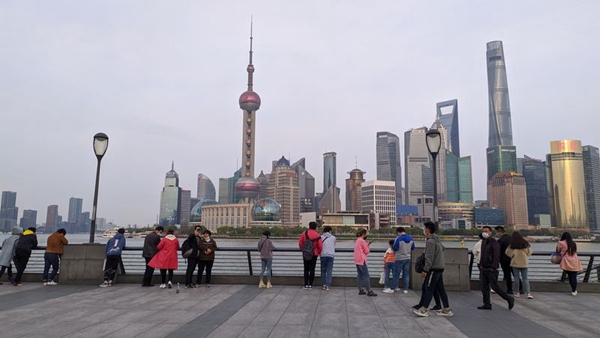Other provinces in China can learn from Shanghai's implementation of digital public services to improve city governance and resident welfare, said legislators during the newly concluded session of the National People's Congress.

Tourists are seen at the Bund in Shanghai, east China, March 24, 2020. (Photo: Xinhua)
"Shanghai's advanced concept of using digital administrative platforms to provide convenience for residents can be a good reference for other provinces and cities," said NPC deputy Shao Zhiqing.
Shao was referring to the one-stop service platform that offers a host of services such as business and household registration and inquiry of health insurance accounts.
In March, the platform introduced a slew of new online-to-offline services, including the replacement of old social security cards. Because of this new service, Shanghai residents can now renew their cards using a computer or their mobile phones instead of visiting the civil affairs center.
Launched in 2018, the one-stop platform offers 2,321 services, more than 80 percent of which can be performed completely online, according to the municipal government.
"Because the administrative structure of Shanghai differs from other provinces, the platform model cannot be easily replicated, but the idea of 'letting data run the errands for the people' is worth promoting," Shao said.
Apart from the public services platform, Shanghai has also launched a one-stop platform for city governance, allowing different administrative departments to share their data.
NPC deputy Hang Yingwei, who is the governor of Shanghai's Pudong district, said that big data has empowered the district operation center to deal with problems such as illegal home rentals and illegal operation of construction trucks.
Presently, the city's one-stop governance platform has merged data from 22 departments and agencies, including public security, traffic and transport, utilities and environmental protection.
NPC deputy Chen Jing, secretary-general of Shanghai municipal government, said that digital governance platforms have also helped build the electronic licenses database and its applications, such as the e-business license and the e-ID card.
"I hope these services can be extended to the Yangtze River Delta to provide people with more convenience when they check in at hotels or book tickets for high-speed trains and flights," Chen said.


